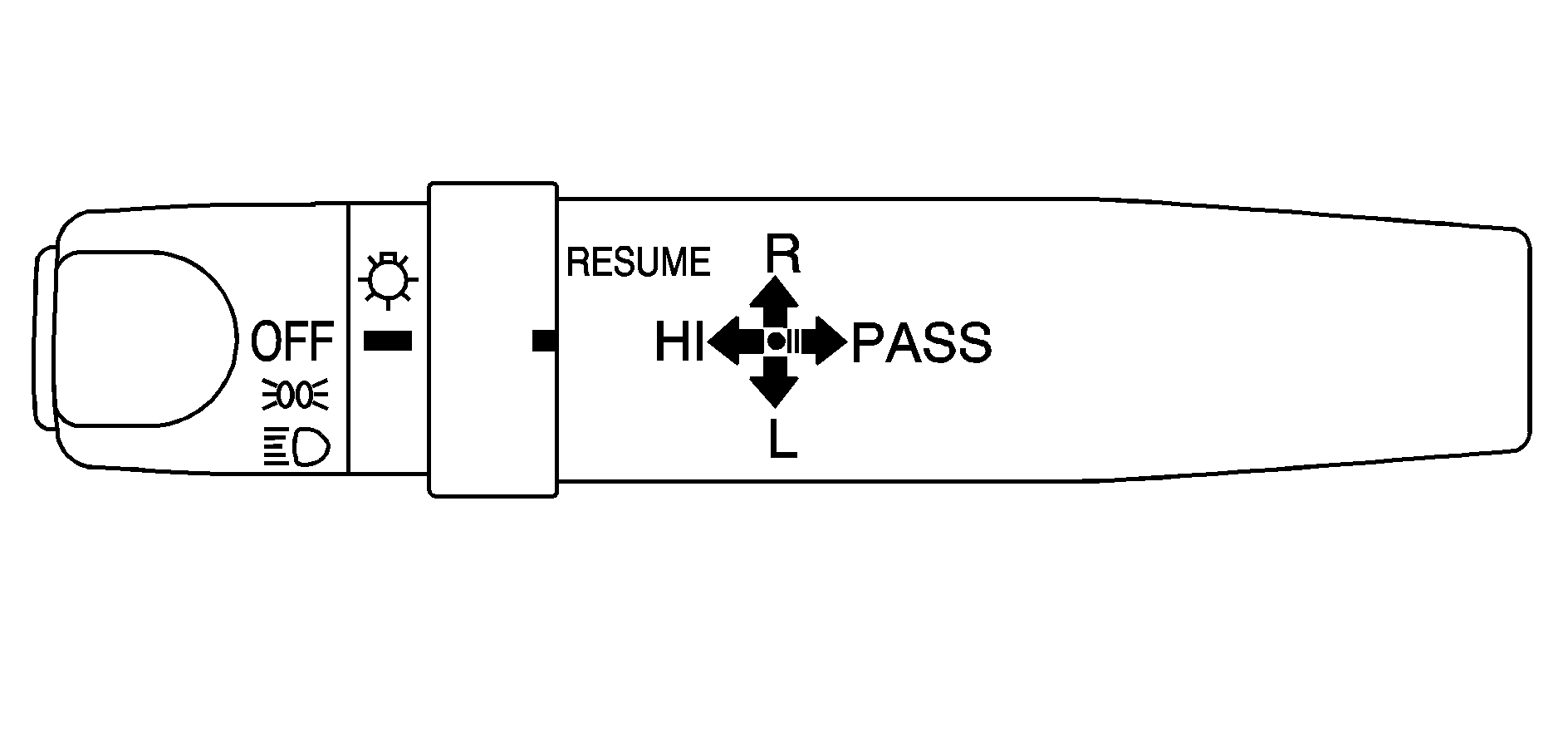
The multifunction lever, located on the left side of the steering column, includes the following:
| • | Turn and Lane-Change Signals |
| • | Headlamp High-Beam/Low-Beam Changer |
| • | Flash-to-pass |
| • | Headlamps |
| • | Cruise Control (if equipped) |
Turn and Lane-Change Signals
The turn signals are controlled by the multifunction lever.
To signal a turn, move the lever all the way up for right or down for left and release it. When the turn is finished, the lever will return automatically.
To signal a lane change, raise or lower the lever until the arrow on the instrument panel starts to flash. Hold the lever in this position until the lane change has been completed.
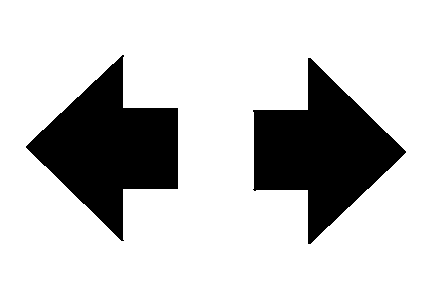
An arrow on the instrument panel cluster will flash in the direction of the turn or lane change.
If you signal a turn or a lane change and the arrows on the instrument panel turn on but do not flash, check the turn signal flasher and circuit breaker.
If a bulb is burned out, replace it to help avoid an accident. If the arrows don't go on at all when you signal a turn, check for burned-out bulbs and a blown fuse. See Fuses and Circuit Breakers .
Headlamp High/Low-Beam Changer
(Headlamp High/Low Beam Changer): To change the headlamps from low to high beam, push the multifunction lever toward the instrument panel. To return to low-beam headlamps, pull the multifunction lever toward you. Then release it.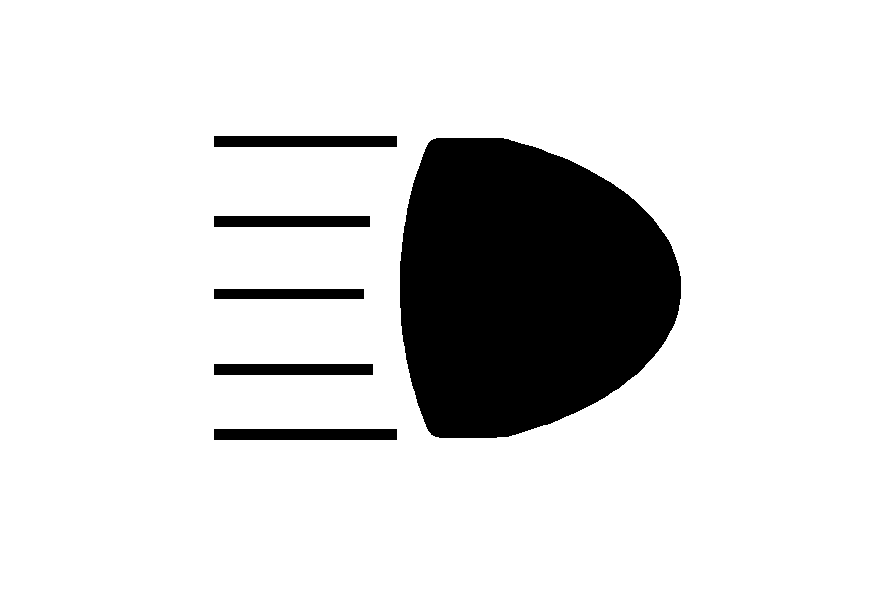
While the high beams are on, this indicator light on the instrument panel cluster will also be on.
Flash-to-Pass
This feature lets you use the high-beam headlamps to signal a driver in front of you that you want to pass. It works even if the headlamps are in the automatic position.
To use it, pull the multifunction lever toward you, then release it.
If the headlamps are in the automatic position or on low beam, the high-beam headlamps will turn on. They'll stay on as long as you hold the lever toward you. The high-beam indicator on the instrument panel cluster will come on. Release the lever to return to normal operation.
Headlamps
The multifunction lever operates the exterior lamps.
(Exterior Lamps): Turn the band on the multifunction lever with this symbol to operate the exterior lamps.The exterior lamp band has three positions:
OFF: Turn the band to this position to turn off all lamps, except the daytime running lamps (DRL).(Parking Lamps): Turn the band to this position to turn on the parking lamps, together with the following:
| • | Marker Lamps (unless your vehicle has the marker and clearance lamps switch) |
| • | Tail Lamps |
| • | License Plate Lamps |
| • | Instrument Panel Lights |
A circuit breaker protects the headlamps. If you have an electrical overload, the headlamps will flicker on and off. Have the headlamp wiring checked right away if this ever happens.
Headlamps On Reminder
If your vehicle has this feature, an alarm will sound when the headlamps and/or parking lamps are turned on and the ignition is in LOCK or ACC.
Windshield Wipers
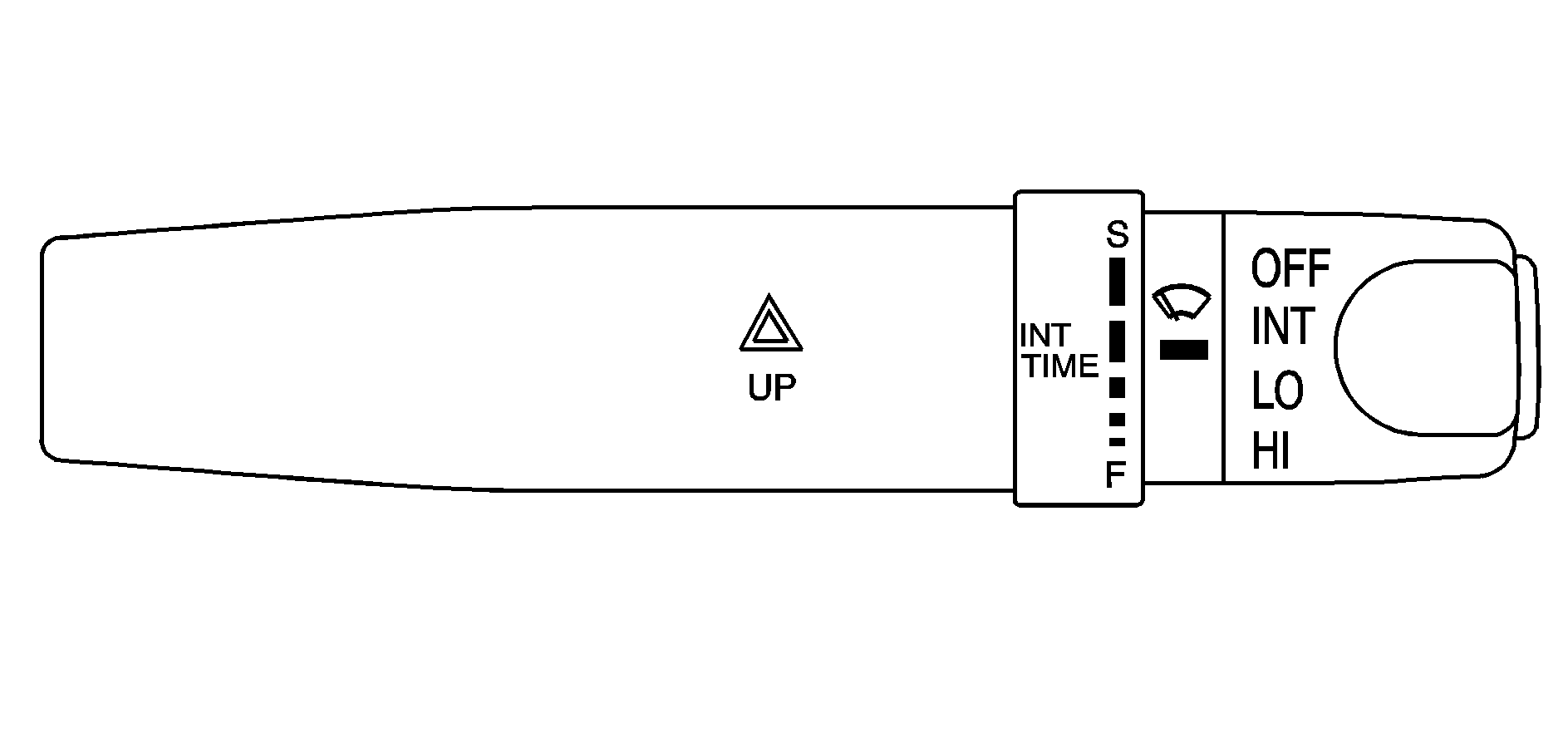
The windshield wipers are controlled by the lever located on the right side of the steering column.
The windshield wipers have these positions:
OFF: Turn the knob at the end of the windshield wiper lever to turn off the wipers.INT (Intermittent): Turn the knob to the intermittent setting to delay the wiper speed. This can be very useful in light rain or snow. When you turn the knob to this setting, you can also set the wiper speed. See the following text for more information.
INT (Intermittent) TIME: Turn this band on the windshield wiper lever to set the delay time between wipes. The closer the band is turned to F (fast), the shorter the delay will be. The closer the band is turned to S (slow), the longer the delay will be.
LO (Low): Turn the knob to this setting to operate the windshield wipers at a low speed.
HI (High): Turn the knob to this setting to operate the windshield wipers at a high speed.
Be sure to clear ice and snow from the wiper blades before using them. If they are frozen to the windshield, carefully loosen or thaw them. If your blades do become worn or damaged, get new blades or blade inserts. For more information, see Windshield Wiper Blade Replacement .
Heavy snow or ice can overload your wipers. The windshield wiper motor is protected from overload by a circuit breaker and a fuse. If the motor overheats due to heavy snow or ice the wiper will stop until the motor cools. Although the circuit is protected from electrical overload, overload due to heavy snow or ice may cause wiper linkage damage. Always clear ice and heavy snow from the windshield before using your windshield wipers.
Windshield Washer

To wash the window, you must have the windshield wipers on.
(Washer Fluid): Press this button at the end of the multifunction lever located on the right side of the steering column. Spray will continue as long as this button is pressed.Caution: In freezing weather, do not use your washer until the windshield is warmed. Otherwise the washer fluid can form ice on the windshield, blocking your vision.
Cruise Control
With cruise control, you can maintain a speed of about 25 mph (40 km/h) or more without keeping your foot on the accelerator. Cruise control does not work at speeds below about 25 mph (40 km/h).
If you have an automatic transmission and you apply your brakes, the cruise control will shut off.
If you have a manual transmission and you apply your brakes or push the clutch pedal, the cruise control will shut off.
Caution: Cruise control can be dangerous where you cannot drive safely at a steady speed. So, do not use the cruise control on winding roads or in heavy traffic.
Cruise control can be dangerous on slippery roads. On such roads, fast changes in tire traction can cause excessive wheel slip, and you could lose control. Do not use cruise control on slippery roads.Setting Cruise Control
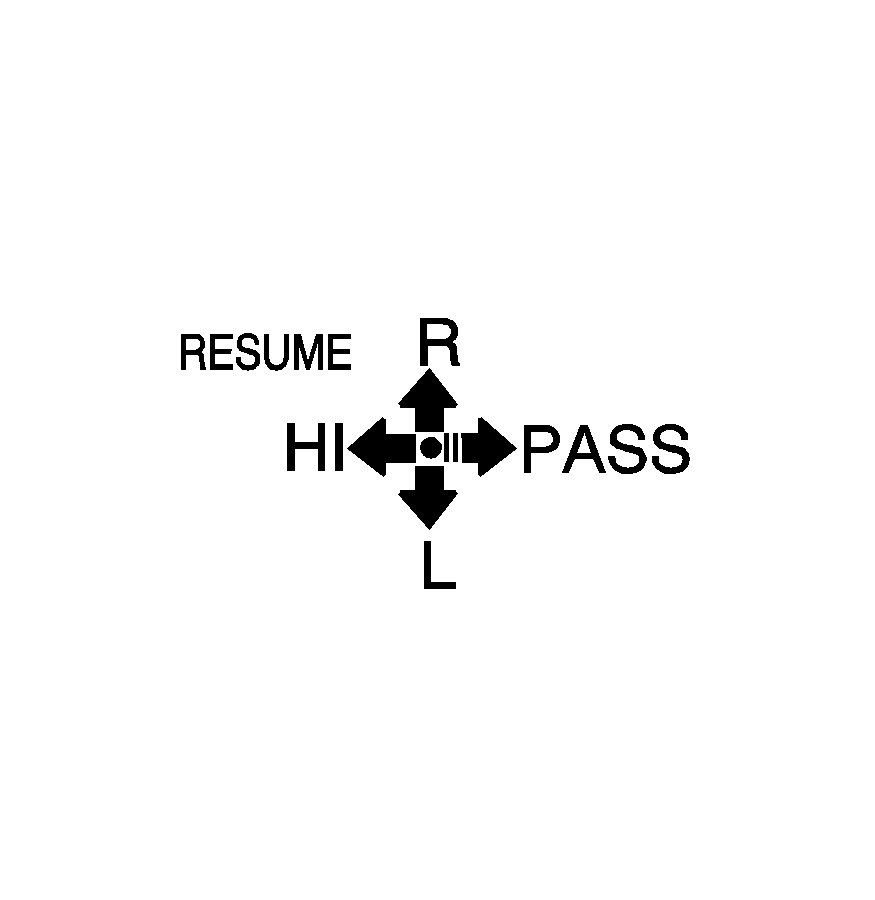
If your vehicle has this feature, the controls are located on the multifunction lever on the left side of the steering column.

This button is located at the lower left side of the instrument panel. It turns the cruise control on and off. When the cruise control is on, the lamp inside the button is illuminated.
SET: Press this button at the end of the multifunction lever to set the cruise control speed.RESUME: Move the band to this position to resume the set speed.
- Press the AUTO CRUISE button to turn the cruise control on. The light inside the switch will turn on.
- Get up to the speed you want.
- Press in the set button at the end of the lever and release it.
- Take your foot off the accelerator pedal.
Caution: If you leave your cruise control on when you are not using cruise, you might hit a button and go into cruise when you do not want to. You could be startled and even lose control. Keep the cruise control switch off until you want to use cruise control.
Resuming a Set Speed
Suppose you set your cruise control at a desired speed and then you apply the brake or the clutch. This, of course, shuts off the cruise control. But you don't need to reset it.
Using the accelerator pedal, increase your vehicle's speed to 25 mph (40 km/h) or more. The cruise control does not work below this speed.
Turn the band on the lever to the RESUME position and release it. Your vehicle will accelerate to the previously set speed.
Increasing Speed While Using Cruise Control
There are two ways to go to a higher speed:
| • | Use the accelerator pedal to get to the higher speed. Press the button at the end of the lever, then release the button and the accelerator pedal. You'll now cruise at the higher speed. |
| • | Turn the band on the multifunction lever to the RESUME position. Hold it there until you get up to the speed you want, and then release it. To increase your speed in very small amounts, turn the band on the multifunction lever to the RESUME position and release it. Each time you do this, your vehicle will go about 1 mph (1.6 km/h) faster. |
Reducing Speed While Using Cruise Control
Press in the button at the end of the lever until you reach the lower speed you want, then release it.
To slow down in very small amounts, tap the button briefly. Each time you do this, you'll go about 1 mph (1.6 km/h) slower.
Passing Another Vehicle While Using Cruise Control
Use the accelerator pedal to increase your speed. When you take your foot off the pedal, your vehicle will slow down to the cruise control speed you set earlier.
Using Cruise Control on Hills
The use of cruise control in mountainous or hilly areas is not recommended.
Ending Cruise Control
There are four different ways to turn off the cruise control:
| • | Step lightly on the brake pedal (manual and automatic transmissions). |
| • | Press the clutch pedal to the floor (manual transmissions). |
| • | Turn off cruise control by pressing the AUTO CRUISE button again. |
| • | Shift the transmission to NEUTRAL (N). |
Erasing Speed Memory
When you turn off the ignition, your cruise control set speed memory is erased.
